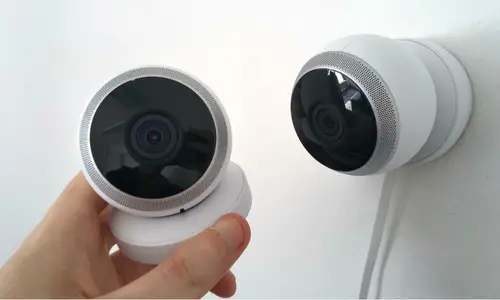When putting together a surveillance system, most people don’t know where to start first. It is not all about the sizes. Rather, the number of cameras you need for your home security system depends on several factors. Depending on the specific needs of your home or business, the number of security cameras you need will vary. However, there are some general guidelines you can follow to help you determine how many cameras you should have.

Why Do People Ask How Many Security Cameras Do I Need?
In today’s world, security is more important than ever. Whether you’re protecting your home or institutions, you need to make sure you have the right level of security. One of the most important aspects of security is having the right number of security cameras. But how do you know how many cameras you need?
The first step is to assess your security needs. What are you trying to protect? What are the potential risks? Once you have a good understanding of your security situation, you can start to determine how many cameras you’ll need.
Ultimately, the answer to this question is going to be different for everyone. But by taking the time to consider your needs, you can make sure you have the right number of security cameras for your situation.
Factors that determine the right number of cameras:
First, consider your budget
First, fix your budget and how much do you want to spend right now on your video surveillance system?
Once you’ve determined your budget and areas to monitor, it’s time to choose the cameras. You can always add more cameras later. Also, consider adding audio recording to your home security system. A recorder can be expensive if it has multiple channels. So, you’ll want to make sure your home security system is flexible enough to handle the additional cameras.
The cost of the security cameras is another important factor. It’s important to consider how much money you want to spend on a system before you start shopping. The more features you want, the higher the price will be. Different brands offer different features. IP cameras, for example, come in many different shapes and sizes, and the functionality will vary. A video surveillance system can monitor a home or business premises while the owner is not home.
Then, size of your home
When it comes to installing security cameras, one of the most important considerations is the size of your home. A few things to keep in mind when determining how many cameras you’ll need.
Your home’s size and the level of security you want to provide will determine how many security cameras you need. A minimum of one camera per floor should be installed at your home’s main entrance, and you may want to place outdoor cameras on all ground-floor entrances. If you live in an apartment, this will not be necessary, but if you’re on a smaller budget, consider installing more cameras on the ground floor, in rooms that are frequently visited, and on the second or third floors’ main hallways.
For a square or rectangle-shaped property, you’ll want to install at least four security cameras, and for a rectangular property, you’ll probably want to install at least eight. This will give you an overall perimeter coverage. And while you’re at it, don’t forget about parking lots. If you want your security system to be effective, consider adding a few parking lot cameras as well.
Finally, determine the placement of your cameras
Placement is also important. Consider placing cameras near entry points such as doors and windows, as well as hallways and children’s rooms. Using cameras in these areas will increase the security of your home and reduce the likelihood of accidents happening. If you have a large home, you should install multiple cameras strategically.
Multi-task With Your Security Cameras
Most people think that security cameras are only good for one thing: keeping an eye on your property. However, there are actually many different ways you can use your security cameras to multi-task and make your life easier. Here are just a few of the ways you can do it:
Use them as a baby monitor
If you have young children at home, you can use your security cameras as a baby monitor. This way, you can keep an eye on your little ones while you’re doing other things around the house. You can even set up multiple cameras in different rooms so you can keep an eye on them no matter where they are.
To keep an eye on your pets
Those who have pets, you know how much they can get into when you’re not around. With security cameras, you can check on them from time to time to make sure they’re not getting into trouble. You can even set up a camera in their favorite room or outside in the yard so you can keep an eye on them while you’re away.
To monitor your home while you’re away
Are you going on vacation or away for a business trip, you can use your security cameras to monitor your home while you’re gone? If you go, you can keep an eye on things and make sure everything is okay. You can even set up alerts so you’re notified if something happens while you’re away.
Try to use them to deter a Low Breaker
Just the sight of a security camera can deter criminals from breaking into your home. If they see that you have cameras, they’re less likely to try to break in. And if they do, you’ll have footage of them that you can give to the police.
Use them to catch offenders
If you do have a break-in, your security cameras can help you catch the offender. With footage of the break-in, you can give it to the police and they can use it to help find the criminals.
As you can see, there are many different ways you can use your security cameras to multi-task and make your life easier. So if you have security cameras, be sure to put them to good use!
Conclusion
Ultimately, the number of security cameras you need will come down to your own personal security needs. But by following these guidelines, you can ensure that your property is adequately protected.


2 thoughts on “How Many Security Cameras Do I Need? Step By Step Guide”
Comments are closed.